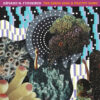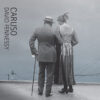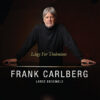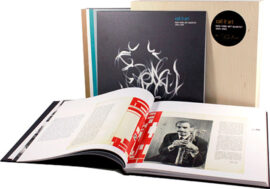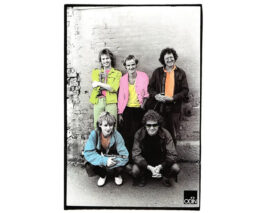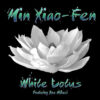
Chinese-American pipa player-vocalist Min Xiao-Fen is a prominent player in the New York downtown scene for the last three decades and is known for her collaborations with Derek Bailey, John Zorn and Björk as well as her homage to Thelonious Monk. She composed «White Lotus» as an original soundtrack to «The Goddess», a 1934 silent film from China’s cinematic golden age, directed by Wu Yonggang and strongly influenced by Hollywood cinema. The film tells the tragic story of an unnamed single mother, forced to work as a prostitute by night in order to get her young son an education amid social injustice in the streets of Shanghai, China. She is robbed by a gangster, ends up in prison for killing him, but a kindly school principal promises to raise her son.
«White Lotus» is a collaboration with guitarist Rez Abbasi, who was born in Pakistan and raised in California, and like Min Xiao-Fen embraces classical music, traditional music and improvised music, and recently released his own original soundtrack for «A Throw of Dice (A Romance of India)», a vintage black-and-white Indian-German silent film from 1929. Their duo focuses, obviously, on plucked instruments. Min Xiao-Fen plays the pipa (pear-shaped, four-stringed instrument, developed during the Qin Dynasty between 220 and 270 B.C.), guqin (ancient, seven-stringed instrument), ruan (four-stringed instrument with a lower tone, like a viola), and sanxian (three-stringed instrument with no frets), and sings and adds loops of Buddhist chanting, while Abbasi plays acoustic and electric guitars. This unlikely combination of instruments enables these imaginative musicians to produces an endless spectrum of juxtaposition: of similarity and imitation; of dialogue and contradiction, and to move freely between ancient, folk musical traditions to modern ones and to suggest border-defying, kaleidoscopic East-West vocabularies.
Min Xiao-Fen’s fascinating soundtrack mirrors the voices of the devoted mother, the innocent son and the evil gangster, and offers a kind of Far-Eastern folk-blues and bluegrass drama. She said that the blues remind her Chinese musical form pingtan, from Southeast China where she grew up. The delicate and suggestive music of «White Lotus» is rooted in Chinese musical traditions but offers a timeless and universal story about gender inequality. Min Xiao-Fen’s operatic vocals and subtle effects and loops enrich the gentle and emphatic, carefully balanced and elegant interplay with Abbasi, and often it is harder to distinguish between their plucked instruments. This moving musical story jumps from one dramatic and emotional peak to another, including the fascinating, mournful «Dukkha (Suffering)», the playful bluegrass and blues of «Faith», «Hatha (Sun and Moon)» and «Joriki (Power of the Mind)», the introspective and poetic «Gassho (Palms Together)», and the last, compassionate and hypnotic «Lotus (A Symbol of Purity)».
Eyal Hareuveni
Min Xiao-Fen (pipa, sanxian, ruan, sound effects, v); Rez Abbasi (g)





